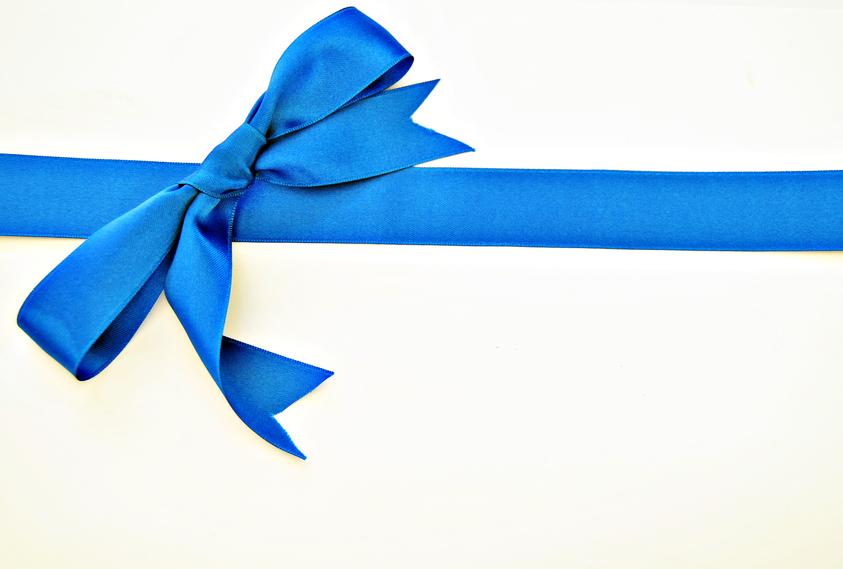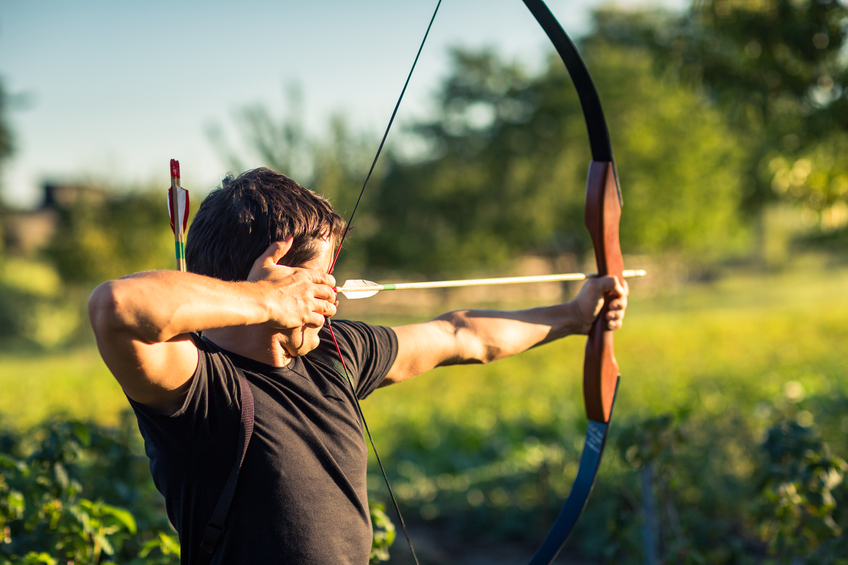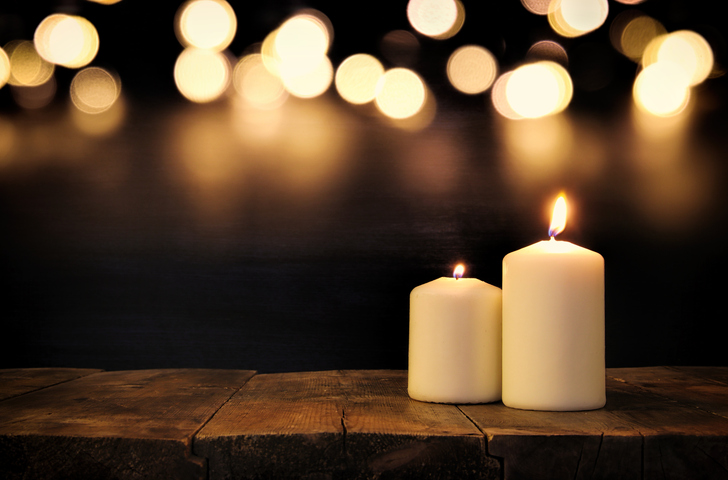bow
(verb, noun, adjective)
/baʊ, boʊ/
 LISTEN
LISTEN



With the first pronunciation above, bow is ‘to bend the knee or incline the head’ to show respect. It also means ‘to bend downwards’ and, figuratively it means ‘to give in to something.’ The related noun bow describes the movement made to show respect. However, bow, with the second pronunciation above, has another noun meaning, ‘a flexible strip of wood bent by a string and used for shooting arrows,’ and also ‘a flexible rod used for playing a musical instrument like a violin.’ It is also a formation of string or ribbon looped together in an attractive way and used for decoration. Related to this sense, the adjective bow means ‘curved outward at the middle.’
Example sentences
- People are supposed to bow when they meet royalty.
- Everyone in the stadium stood and bowed their heads for the minute of silence.
- Wendy was determined not to give up her struggle for justice, but in the end she bowed to pressure.
- Robin Hood used a bow and arrows to shoot his enemies.
- The violinist picked up her bow and began to play.
- I didn't have a belt, so I wrapped a piece of ribbon around my waist and tied a bow.
- The living room has a beautiful bow window.
Words often used with bow
take a bow: bow at the end of a performance. Example: “When the play was over, all the actors came back on stage and took a bow.”
make a bow: bow. Example: “Seeing the Queen approaching him, the duke made a bow.”
bow and scrape: be servile. Example: “That guy is so annoying; he’s always bowing and scraping to the boss.”
bow out: gracefully withdraw from something. Example: “Knowing she couldn’t compete after her injury, Audrey bowed out of the tennis tournament.”
bow tie: a tie in the shape of a bow. Example: “Matt Smith’s Doctor Who wore a bow tie.”
In pop culture
Rihanna’s song Take a Bow refers to the meaning of ‘bending the body forward’ and has other imagery of being on stage. Notice the lyrics: “How ’bout a round of applause” (a round of applause is when people clap at the end of a show), “Standing ovation” (that’s when people stand up at the end of a performance), “You put on quite a show,” and “Curtain’s finally closing.” In the song she is using this imagery figuratively to describe an experience with someone who has upset her and has been very dramatic.
Additional information
Bow, with the first pronunciation given above, is also the front or forward end of a ship or airplane, and as an adjective, it refers to it. Example: “The cruise passengers walked toward the bow for the fire drill.”
Did you know?
In old Northern English and Scottish dialect, bow, with yet another pronunciation /buː/ , meant a herd of cattle or all the cattle on a farm. This also gave rise to the noun “bow-house” – the building where the cows were kept.
Origin
Bow, the verb meaning ‘to bend your body or head to show respect,’ dates back to before the year 900. The Old English verb būgan became the Middle English verb bowen before losing the ending to become the verb we use today. It is related to the Dutch verb buigen, as well as the German biegen, the Gothic biugan and the Old Norse buga. As a noun meaning ‘a weapon to shoot arrows,’ bow dates back almost as far, to before the year 1000. The Old English term boga became bowe in Middle English, which was pronounced with a silent e. It is related to the Dutch boog, the German Bogen, and the Old Norse bogi. Both meanings developed from the same Proto-Germanic root bugon, which meant ‘to bend.’
Word of the Day is released Monday through Friday.



